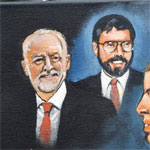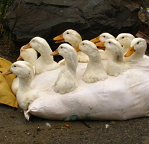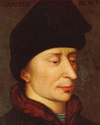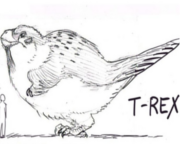|
Guavanaut posted:Disappointed that they're not on the 18th century thing too. They're not even on there. Was the maker aware of Finns? Eastern Sweden was probably not considered all that important in 18th century Austria. e; oh poo poo new page, have a map 
Kainser fucked around with this message at 22:55 on Jun 22, 2017 |
|
|
|

|
| # ? Jun 3, 2024 10:41 |
|
Well who made their cellphones? Wasn't that thing Austrian/Austro-Hugarian? The amount of Turk-hate says that to me.
|
|
|
|
Guavanaut posted:Disappointed that they're not on the 18th century thing too. They're not even on there. Was the maker aware of Finns? Europe ends at Stockholm.
|
|
|
|
steinrokkan posted:I'm bored, I think I'm going to vomit for a bit to entertain myself. Turkey makes me vomit too, thanksgiving is a nightmare.
|
|
|
|
I mean all that hair gel they all use can't be good for the body.
|
|
|
|
steinrokkan posted:I'm bored, I think I'm going to vomit for a bit to entertain myself. They weren't called the Sick Man of Europe for nothing
|
|
|
|
Kainser posted:Eastern Sweden was probably not considered all that important in 18th century Austria. Yeah, caring immensely about the petty differences between Nordic states is more of a Northern European thing. The Danes and Norwegians don't make it on either. Was the context for this the 30 Years War? Would explain most of the omissions. E double checked the date I guess this was made after the wars of religion had mostly died down, but it still seems very much informed by them. Duckbox fucked around with this message at 08:57 on Jun 23, 2017 |
|
|
|
Interestingly, the cultural differences and animosities between the denominations grew larger after the Peace of Westphalia - Catholics and Lutherans/Calvinists had stopped murdering each other (mostly, anyway) and instead elevated sheer passive-aggressiveness to a form of art at a degree that's frankly breathtaking. At least in Germany you could actually study “polemic theology“, which consisted solely of courses about how to drop sick burns on your religious adversaries  As late as the 1790s travelogue writers reported that you could easily tell whether a woman living in the bidenominational city of Augsburg was Catholic or Protestant simply by the way she dressed. Later historians would dub this self-propelled segregation and distinction in those areas where the denominations were living closely together as an “invisible border“ that grew stronger throughout the late 17th century and only (very slowly) started to disappear again from the 1780s/1790s onwards. The 19th century again saw denominational differences flaring up, although they were of a different quality (though not altogether dissimilar) than those before, and those only really went away in the 60s or so. Traces of them can still easily be seen if you know where to look. As late as the 1790s travelogue writers reported that you could easily tell whether a woman living in the bidenominational city of Augsburg was Catholic or Protestant simply by the way she dressed. Later historians would dub this self-propelled segregation and distinction in those areas where the denominations were living closely together as an “invisible border“ that grew stronger throughout the late 17th century and only (very slowly) started to disappear again from the 1780s/1790s onwards. The 19th century again saw denominational differences flaring up, although they were of a different quality (though not altogether dissimilar) than those before, and those only really went away in the 60s or so. Traces of them can still easily be seen if you know where to look.
|
|
|
|
System Metternich posted:The 19th century again saw denominational differences flaring up, although they were of a different quality (though not altogether dissimilar) than those before, and those only really went away in the 60s or so. Traces of them can still easily be seen if you know where to look. This is pretty interesting, could you elaborate on this last bit?
|
|
|
|
SaltyJesus posted:This is pretty interesting, could you elaborate on this last bit? Well, I'm only really qualified in the loosest sense to talk about German-speaking Europe, but seeing as historically-speaking it always was sort of a testing laboratory for European religiosity I think that it is somewhat representative of other European nations of the time as well. So yeah, the French Revolution marked not only a strong political shift, but also the beginning (or rather, the final implementation) of a new attitude of the various states towards their interaction with the Church. The old denominational segregation was relaxed; Protestants were now allowed to settle in Catholics territories and vice versa, but at the same time the State, which was speedily turning from a dynastic territory into a nation state, greatly broadened its claims on control over population and society, both inspired by strong rationalist and statist tendencies within the (mostly Protestant, or hardly-Catholic-anymore) Enlightenment and by the image of a nation as a legal, political, cultural and ethnic union. The Protestant Churches, which had been mainly state-controlled before anyway, were now fully turned into official state departments - a nice example of this is the traditional clothing of Lutheran pastors in Germany, which is largely the result of King Frederick William II of Prussia ordering that all of his officials needed to wear the same attire, which included Lutheran priests and Jewish rabbis, too. The Catholic Church on the other hand was inherently and international organisation with a common spritual and hierarchical centre that it ruled itself. It's no wonder then, that the 19th century was an age of church-state strife. At the same time the Church also realised that a new age in history had begun: Enlightenment had irrevocably influenced and changed all of European society and its attitudes. The 19th century was also the age of political ideologies, with movements like nationalism, liberalism or communism all being children of this particular time. Suddenly there were other things besides religion that claimed to have an explanation for how the world functioned and that offered a path to a better or even perfect future. The Catholic Church was ill-equipped to deal with these new challenges; instead of trying to (en)counter them intellectually, Catholics instead increasingly retreated from public life and discourse; the Church "clammed up", essentially. From the early 19th century onward until at least the death of Pope Pius X in 1914 the Church was decidely "anti-modernist", as the Popes called it themselves. Leo XII (1823-1829) condemned what he called "tolerantism" and was very suspicious about natural sciences; Gregory XVI 1831-1846) declared freedom of religion and freedom of speech to be incompatible with Catholicism and hated modern technologies like railway or gas lighting, literally decrying the former as "roads to hell" (though that was also a quite clever pun in its original French, I might add). After Italian unification and the loss of the Papal States, Pope Pius IX chose to cut all cooperation with the new Italian government. Catholics were forbidden of participating in government in any way (which included voting) from 1871 to 1905. This antimodernism saw its peaks in things like the "Syllabus of Errors" (1864), which condemned a lot of things wholesale, or the "oath against modernism" that all clergymen had to take from 1910 until 1967. On the other side the states increased their attacks against the Church, claiming the right to appoint bishops, making it harder to enter convents etc. In Germany this reached its peak during the "Kulturkampf" ("culture struggle") of the 1870s, when the Prussian and Protestant governement of a newly unified Germany mounted a series of attacks against Catholics and their institutions throughout the Empire, arresting or exiling thousands of priests and bishops, closing monasteries and so on. In a way this was also a class struggle, as Catholics were much more likely to be farmers or craftsmen versus Protestants, who tended to be much more bourgeois. Similar conflicts between Church and State could be observed in Italy after unification, in France, in Mexico, Spain, Portugal and many other countries. In English-speaking countries this anti-Catholicism also took on a decidedly racist component, targetting people as much for being Irish or Italian immigrants as for being Catholic. Catholics themselves mostly reacted by publicly siding with the Pope; the resulting political movement is called "ultramontanism" (Latin "ultra montes", "beyond the mountains" [i.e. the Alps, meaning the Pope in Rome]). At least in Germany this conflict between a strongly Protestant-influenced government and common Catholics led to the tension between Catholics and Protestants altogether growing again. I have to go now, so I have to stop rambling here, but this expressed itself in decidedly different political positions running along denominational lines in Germany, e.g. with Catholics having their own party, the "Centre", and Catholics and Protestants being strongly influenced in their voting patterns by their religion, for example when Protestants were much more likely to vote NSDAP in 1932 than Catholics. As late as 1969, the far-right NPD got the majority of its votes from Protestants; this Catholic reluctance to vote (potentially anti-clerical) far-right and nationalist parties has disappeared since then, though. But you only need to look at JFK having to promise that he wouldn't take orders from the Vatican to see how denominational conflict between Protestants and Catholics was well and alive well into the 20th century. Hell, Ulster and English Catholics on Twitter flipping their poo poo now that the DUP, a party that has radical anti-Catholic and fundamentalist Protestant roots, is set to prop up the Tories is as good a sign as any that in some areas this conflict (which, in contrast to the preceding centuries, was and is always difficult to separate from class and ethnic conflict) still exists. Tl,dr: The emerging nation state clamped down on Catholics and their Church, perceiving it as a potential "fifth column", while the RCC itself took a radical anti-modernist stance that unified Catholics at the price of escalating the conflict with their respective governments and/or Protestants. This antimodernist attitude cost the RCC an entire century in its intellectual development, I might add, and prepared the ground for a whole host of radical traditionalist Catholics who mistakenly believe that the Church of the 19th and early 20th century is representative of the Church throughout its full 2000-year history; and attitude that is all too often shared by Protestant or atheist critics of the Church as well. Sorry for becoming a bit abrupt towards the end here, but I'm way too late already 
|
|
|
|
Haha, no worries, that was great.
|
|
|
|
System Metternich posted:Tl,dr: The emerging nation state clamped down on Catholics and their Church, perceiving it as a potential "fifth column", while the RCC itself took a radical anti-modernist stance that unified Catholics at the price of escalating the conflict with their respective governments and/or Protestants. This antimodernist attitude cost the RCC an entire century in its intellectual development, I might add, and prepared the ground for a whole host of radical traditionalist Catholics who mistakenly believe that the Church of the 19th and early 20th century is representative of the Church throughout its full 2000-year history; and attitude that is all too often shared by Protestant or atheist critics of the Church as well.
|
|
|
|
A Buttery Pastry posted:2000 years might be a stretch, but the RCC already made a turn for the reactionary much earlier than the 19th century - leveraging Italian proto-nationalism to undermine attempts at reform during the Renaissance. I honestly now nothing about that, care to elaborate?  In any case I wouldn't say at all that the early modern RCC was “reactionary“ (exceptions like yours notwithstanding), it just went down a radically different path than Protestant Europe did In any case I wouldn't say at all that the early modern RCC was “reactionary“ (exceptions like yours notwithstanding), it just went down a radically different path than Protestant Europe did
|
|
|
|
System Metternich posted:I honestly now nothing about that, care to elaborate? System Metternich posted:In any case I wouldn't say at all that the early modern RCC was “reactionary“ (exceptions like yours notwithstanding), it just went down a radically different path than Protestant Europe did
|
|
|
|
The Reformation was a fundamentalist revolution and 16th-century Protestants were pretty much the ISIS of their time, culminating in Calvin burning Michael Servetus alive for opposing the Trinity and infant baptism. The Catholic Church at least has the good grace of being so obviously worldly, greedy and corrupt that pragmatism and self-interest usually win out over theology. As far as its actual moral guidelines are concerned, the pope hasn't been taken seriously in most of the developed Catholic world for over half a century, and in some cases for centuries. This is in stark contrast to the various Bible Belts in the Protestant (particularly Calvinist) world, which have barely mentally evolved since the 17th century. Don't get me wrong, if I were a Christian at all I'd be Protestant since Catholicism is more like an organized mafia than a religion, that seemingly exists solely to launder money and shelter pedophiles. But as an atheist, I'm glad that the RCC is so worldly and hard to take seriously, since it means there are parts of the Western world completely free from frightening anti-scientific nonsense like creationism and anti-vaccination. I suppose Anglicanism and to a lesser extent Lutheranism are decent compromises, basically being Catholicism without the pope.
|
|
|
|
You can't just take your opinions of 21st century catholic and protestant churches and apply them to the 16th century.
|
|
|
|
Phlegmish posted:The Reformation was a fundamentalist revolution and 16th-century Protestants were pretty much the ISIS of their time, culminating in Calvin burning Michael Servetus alive for opposing the Trinity and infant baptism. The Catholic Church at least has the good grace of being so obviously worldly, greedy and corrupt that pragmatism and self-interest usually win out over theology. As far as its actual moral guidelines are concerned, the pope hasn't been taken seriously in most of the developed Catholic world for over half a century, and in some cases for centuries. This is in stark contrast to the various Bible Belts in the Protestant (particularly Calvinist) world, which have barely mentally evolved since the 17th century. What, the Orthodox don't even get a mention? 
|
|
|
cebrail posted:You can't just take your opinions of 21st century catholic and protestant churches and apply them to the 16th century.
|
|
|
|
|
SaltyJesus posted:What, the Orthodox don't even get a mention? I'm not familiar with the Orthodox Church at all, theologically they've always struck me as being reasonably similar to Catholicism, while denying the authority of the Roman pope.
|
|
|
|
SaltyJesus posted:What, the Orthodox don't even get a mention? Everybody always forgets about the Orthodox, though even I as a Catholic have to admit that your priests look like badass wizards   
|
|
|
|
Phlegmish posted:Don't get me wrong, if I were a Christian at all I'd be Protestant since Catholicism is more like an organized mafia than a religion, that seemingly exists solely to launder money and shelter pedophiles. But as an atheist, I'm glad that the RCC is so worldly and hard to take seriously, since it means there are parts of the Western world completely free from frightening anti-scientific nonsense like creationism and anti-vaccination. I suppose Anglicanism and to a lesser extent Lutheranism are decent compromises, basically being Catholicism without the pope. Hey be fair, protestant churches also launder money and shelter pedophiles. https://www.theguardian.com/world/2011/sep/13/brazil-church-embezzling-millions-poor https://crcc.usc.edu/a-crisis-of-integrity-in-seoul-the-megachurch-capital-of-the-world/ http://www.huffingtonpost.com/valerie-tarico/the-protestant-clergy-sex_b_740853.html
|
|
|
|
Phlegmish posted:I'm not familiar with the Orthodox Church at all, theologically they've always struck me as being reasonably similar to Catholicism, while denying the authority of the Roman pope. Catholicism is reasonably similar to Orthodoxy, while denying the authority of the Roman Emperor. 
|
|
|
|
Byzantine posted:Catholicism is reasonably similar to Orthodoxy, while denying the authority of the Roman Emperor. Splitters. Renounce the primacy of the pope and be welcomed back as an equal see of the Pentarchy. SaltyJesus fucked around with this message at 15:58 on Jun 24, 2017 |
|
|
|
The Pentarchy is no more. The other four Sees are now in Muslim lands, except for Jerusalem which is claimed by the Jews instead. Rome is the only survivor, it's time for the Orthodox stray sheep to let go of the past and return to the fold.
|
|
|
|
Excuse me? Constantinople is an only temporarily embarrassed Patriarchate that is sure to be reclaimed any day now.
|
|
|
|
orthodox church is an oriental-despotic cult of the russian state, not a christian religion
|
|
|
|
Don't tell Greece.
|
|
|
|
The Russians are a bunch of Johnny-come-latelies lol at only becoming autocephalous in 1589, just lol
|
|
|
|
khwarezm posted:Don't tell Greece. Greeks are Slavs in denial
|
|
|
|
icantfindaname posted:Greeks are Slavs in denial I thought they were confused Albanians?
|
|
|
The Anime Turnpike posted:I thought they were confused Albanians?
|
|
|
|
|
I thought Greece was just independent West Turkey? :confusedbaldeagle:
|
|
|
|
The Anime Turnpike posted:I thought they were confused Albanians? I thought they were confused Turks!
|
|
|
|
Byzantine posted:Orthodoxy is reasonably similar to Catholicism, while denying the authority of the Roman Emperor.
|
|
|
|
Byzantine posted:Catholicism is reasonably similar to Orthodoxy, while denying the authority of the Roman Emperor. Excellent post/username combo
|
|
|
|
Cat Mattress posted:The other four Sees are now in Muslim lands Confusion about the Sees of the pentarchy or raving about muslim refugees in Italy? You be the judge!
|
|
|
|
reignonyourparade posted:Confusion about the Sees of the pentarchy or raving about muslim refugees in Italy? You be the judge! I thought the christian patriarch was in the disputed part of Jerusalem?
|
|
|
|
Agnosticnixie posted:I thought the christian patriarch was in the disputed part of Jerusalem? I completely misread what Cat Mattress was saying.
|
|
|
|
icantfindaname posted:Greeks are Slavs in denial No, that's Egyptians.
|
|
|
|

|
| # ? Jun 3, 2024 10:41 |
|
SaltyJesus posted:Excuse me? Constantinople is an only temporarily embarrassed Patriarchate that is sure to be reclaimed any day now. Oh don't worry, the boys in Venice have a plan if you Orthodox get uppity again  
|
|
|































